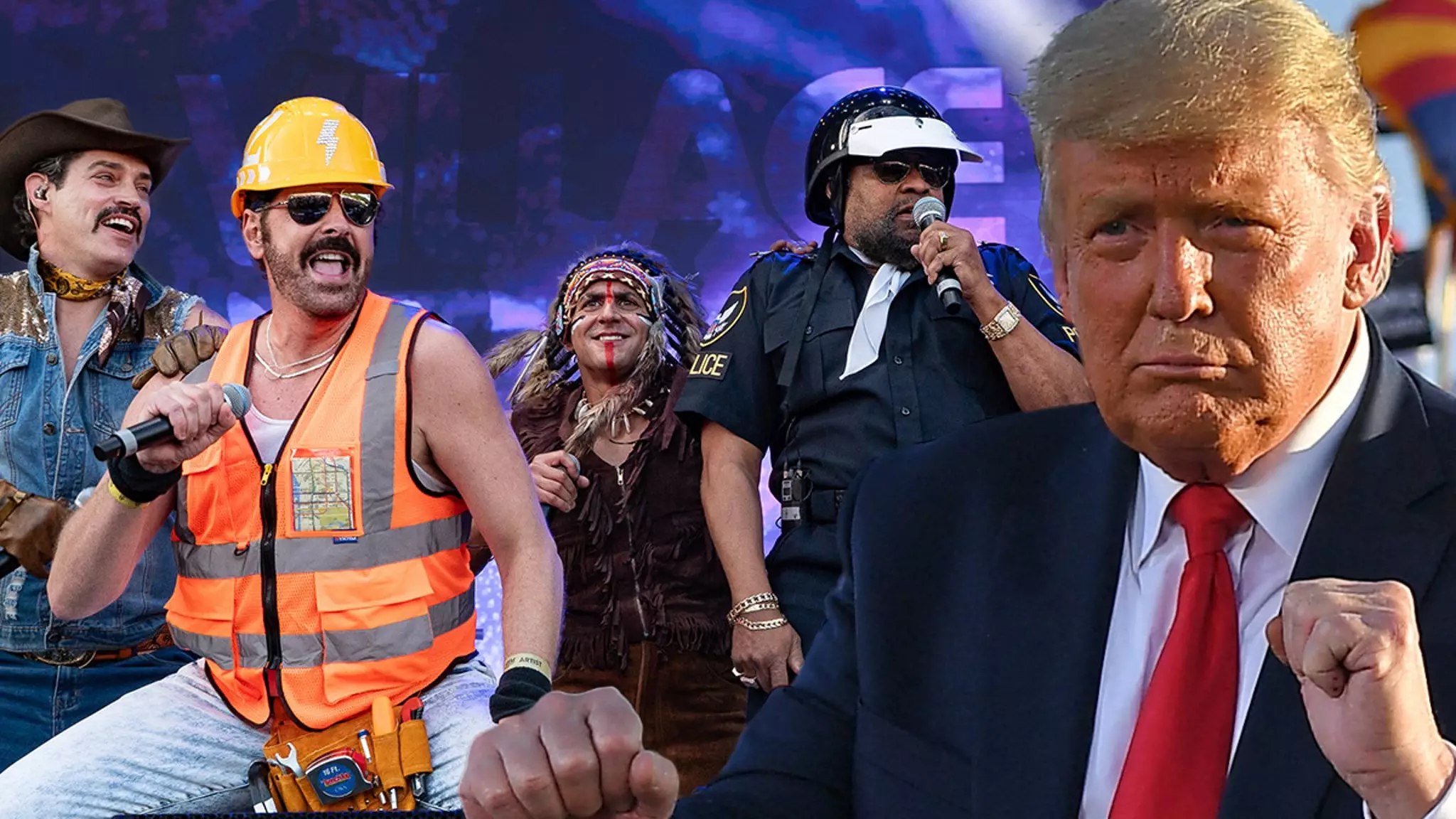In an unexpected turn of events, the Village People, a band synonymous with upbeat disco anthems, have agreed to perform at events surrounding the inauguration of Donald Trump. Historically, the group’s relationship with Trump has been complicated. They previously expressed disdain for his use of their music at political rallies, fundamentally opposing the marriage of their art and Trump’s controversial political stance. However, they seem to have reconciled, citing a newfound perspective on the role of music in society. Their decision raises some interesting questions about artistry, commerce, and the influence of politics on creative expression.
The Village People have communicated that their choice to align with Trump shouldn’t be interpreted solely through a political lens. In their statement to fans, they emphasized that music should transcend politics. This sentiment could be seen as an acknowledgment of the complex, and often transactional, nature of the entertainment industry. By performing at Trump’s events, the band could be positioning themselves for greater visibility and financial opportunities. Their words imply a pragmatic approach: “music is to be performed without regard to politics.” Such statements elicit mixed responses from fans who question the integrity of artistic expression in the face of commercial gain.
Trump’s fondness for the Village People’s “Y.M.C.A.” takes on added significance as it becomes an unofficial anthem for his administration. The Village People expressed hopes that their performance of this iconic track would foster unity after a divisive political season. However, there is irony in such a desire. The song has long been associated with themes of celebration and acceptance, yet its utilization in a politically charged atmosphere may also perpetuate division among supporters and detractors alike. It’s a classic example of how a cultural artifact can be at odds with its original intent, transforming its reception based on the context in which it is used.
The decision of the Village People to perform at Trump’s inauguration-related events illuminates broader dynamics in the music industry, particularly regarding political affiliations. It invites a discourse on whether personal convictions should take precedence over business opportunities. As more artists navigate similar dilemmas, the question becomes: at what point does participation in controversial political events tarnish an artist’s brand? While some musicians vehemently oppose political affiliations, others may find that aligning with such figures could lead to financial success. This juxtaposition creates a complex landscape for artists in an increasingly polarized society.
Ultimately, the Village People’s acceptance to perform at Trump’s events serves as a microcosm of a larger cultural phenomenon where entertainment and politics are inextricably linked. As society continues to grapple with these complexities, the band’s decision may serve as both a reflection of current societal norms and an influencing factor in shaping the future of political performances. Amid this backdrop, audiences will remain divided, grappling with feelings of nostalgia for the music while questioning the ethical implications of its performance in a politically charged context. The Village People’s actions thus may set a precedence, challenging artists to reconsider the interplay of their work and the political climate in which it exists.

